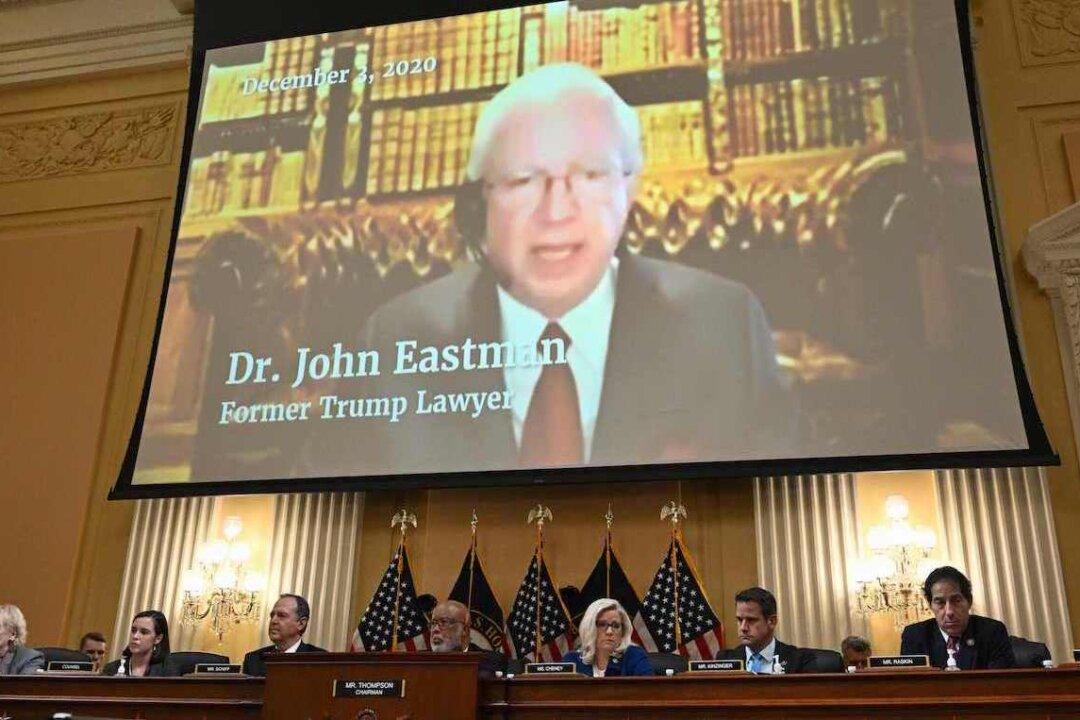A federal judge has ordered John Eastman, a former attorney for former President Donald Trump, to turn over a number of emails to the House Jan. 6 Committee. The judge determined that some of the emails showed that Trump had signed documents he knew to be false.
Judge David O. Carter’s order on Wednesday is part of ongoing litigation between Eastman and the House Jan. 6 Committee over emails that it had subpoenaed from Eastman.




